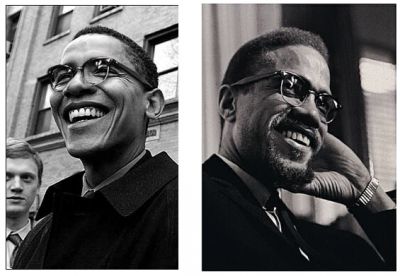Lions and Tigers and Black Leaders! Oh my!
There are many things to be fearful in this world bears, H1N1, back taxes, but certainly not Black leaders. From the title of the post, you may be confused. We’ve elected Barack Obama, we have a Black RNC chair, so what could possibly be the fear of Black leaders? Well the catch is I’m not talking about Black elected officials, I’m talking about the now “passe” Black leaders of old and present. You know, Marcus Garvey, Fannie Lou Hamer, Khaled Muhammad, Assata Shakur, Louis Farrakhan, Winnie Mandela, Jeremiah Wright, and all the other folks you were taught weren’t worth listening to. Those who get washed out of Black History month, those who get forgotten and replaced in national memory with more convenient or palatable leaders. I’m talking about organic leaders, the ones whose names you may be familiar with, but mysteriously their work is downplayed and their legacies remain silenced and often hazy.
A couple of months ago, I got a chance to see Reverend Jeremiah Wright who became infamous during the 2008 presidential campaign. Wright is the Pastor emeritus of Trinity United Church of Christ in Chicago and a long time fixture in Black Chicago. Obama’s candidacy brought large amounts of attention to Trinity and Wright’s leadership while he was pastor. Despite the copious attempts to destroy Obama via Wright, Barack Obama was able to be elected, but Wright and many other contemporary Black leaders were thrown to the sidelines and even under the bus.
The lecture I attended by Wright was on a Saturday and was for multiple Brooklyn congregations. The subject was the African influence on “mainline Western religion.” Wright beautifully presented the significance and relevance of African culture not just historically but contemporarily. Bouncing between topics and disciplines, he really demonstrated his ability to see the struggle of Black people and the struggles of Bible as analogous if not synonmous. While this has been a long standing tradition of Black religion, he did this while highlighting the small and large ways that people of the African Diaspora sometimes run away from our culture in an attempt to assimilate into some Western ideal of culture and religious practice. His commitment to challenging “Western logic” and individual-centered philosophy with more African-oriented epsitomologies was inspiring. Watching Wright speak, I could not help but think of the energy, vitality and truth that Black leaders exhibit when they are free on confines.
We remain in a moment where people are beginning to realize that the election of Barack Obama does not mean a Black political agenda, one in which race is central, will continue to be pushed into the public sphere. So the question becomes, who advances the concerns of the faces at the bottom of the well? Most of the aforementioned leaders held little allegiance to mainstream insitutions and thus took serious the task of “bringing voice to the voiceless.” While this often left them at odds with groups, media conglomerates and activists, in reality, it may be what we need now more than ever before. While Black leaders not being attached to traditional institutions holds its harzards, it also further opens up dialogues in the black public sphere. The challenge of Black radical leaders is to go head up with “liberal” and “conservative” figures, but still remain true to a project of representing the interests of Black people, not simply their own interests. The double edged sword can often be the downfall of leaders, but its the thing that makes me most hopeful that a Black political agenda will continue to exist in the era of Black president.
Filed under: Ancestors, BHC, Black Men, Electoral Politics, Food for Thought, Gender, General, Grassroots, Not Gonna Make it, Obama, Race




Pingback: Uptown Notes - What are you doing for Black August?()